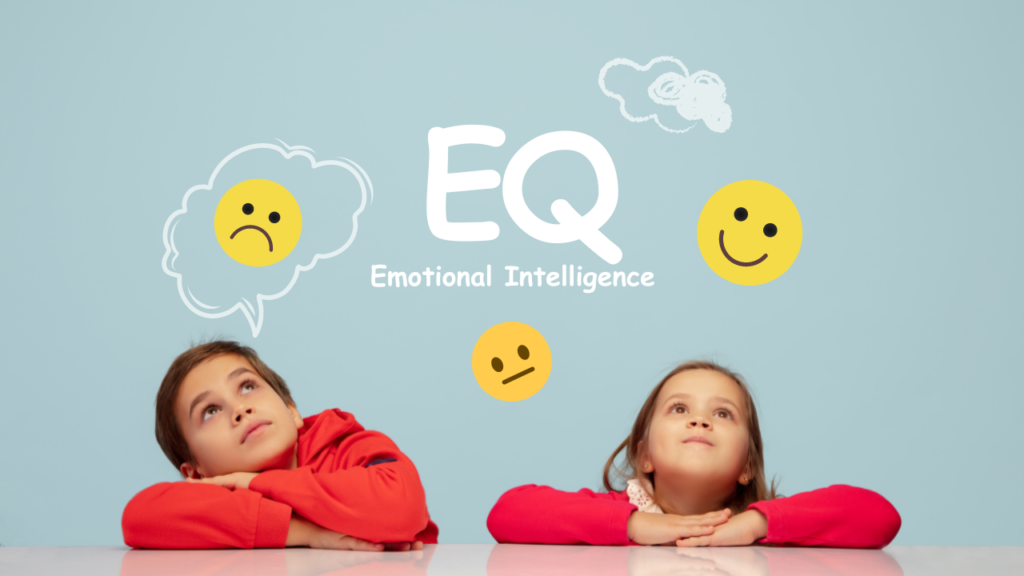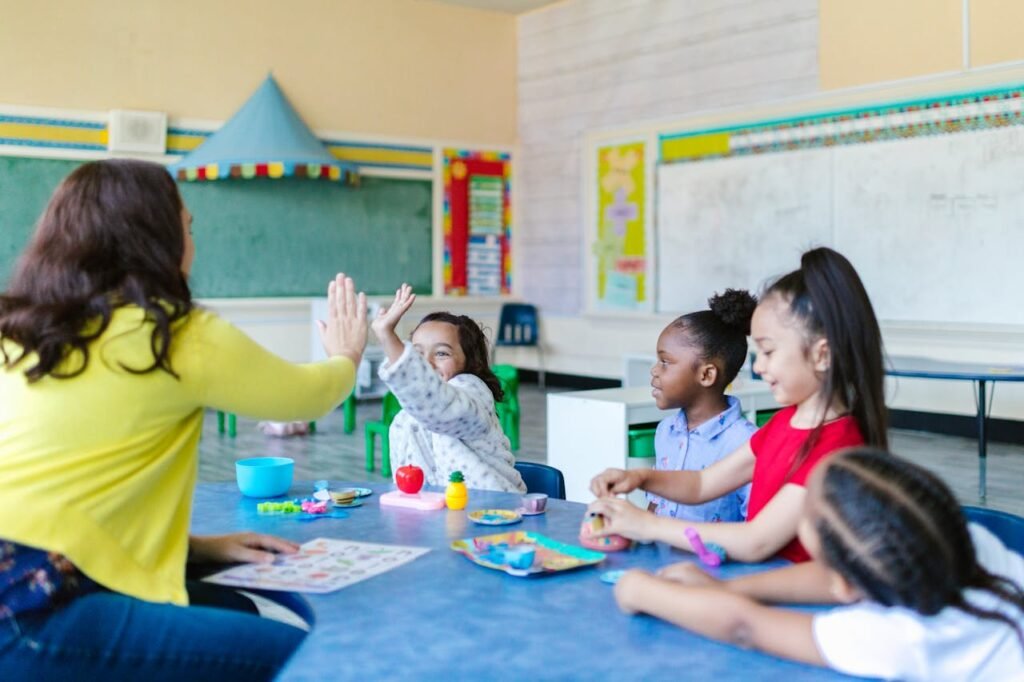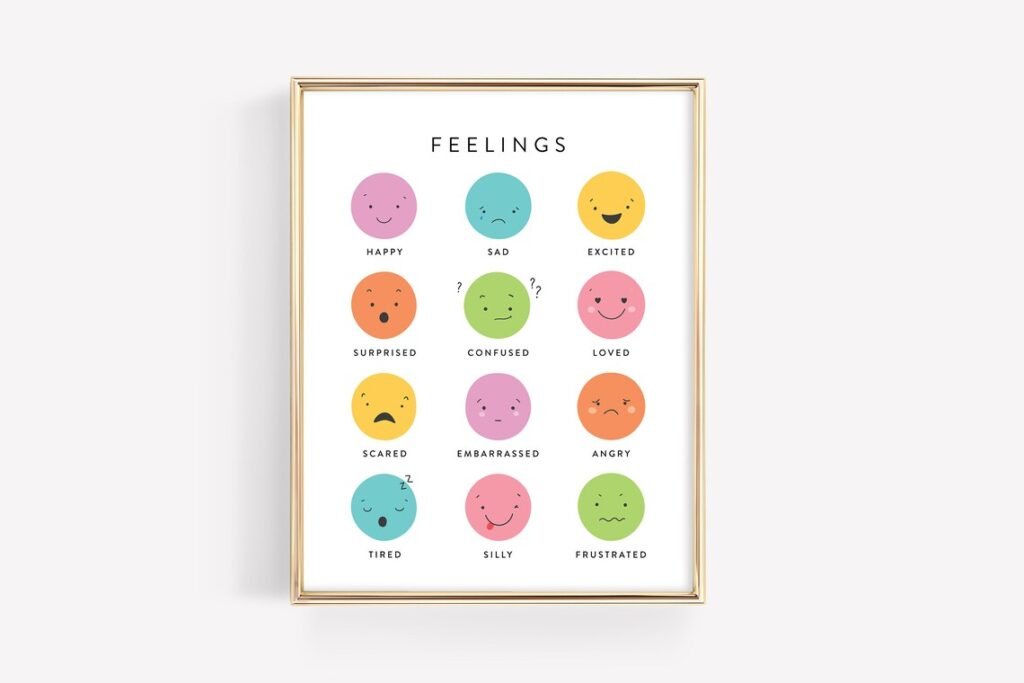
Introduction
Developing a child’s cognitive abilities is no longer enough in today’s educational landscape. Children need to build the skills to understand and manage their emotions, which is where emotional intelligence (EQ) plays a crucial role. Emotional intelligence in early childhood education is the foundation for nurturing emotionally resilient individuals who can cope with life’s challenges.
As educators, it is important to consider how we integrate EQ into the classroom, as it fosters emotional well-being, strong social skills, and academic performance. Institutions like the BEST Teacher Training Institute in Mumbai Borivali and the Best ECCEd Teacher Training Institute in Mumbai Borivali empower future educators with the skills necessary to teach EQ effectively. This blog will explore why teaching emotional intelligence in early childhood is so important, the key benefits it offers, and practical strategies to incorporate it into daily lessons.

Define Emotional Intelligence (EQ)
Emotional intelligence (EQ) is the capacity to recognize, understand, and manage both your own emotions and those of others. It encompasses skills like regulating one’s feelings, showing empathy, interacting effectively with others, and being self-aware. In early childhood, developing these skills is crucial for helping children navigate social settings, form strong relationships, and build a solid sense of self. By introducing EQ early on, we set the stage for children to become emotionally balanced and socially adept individuals.

The Importance of EQ in Early Childhood Development
Early childhood is a critical time for emotional and social development. Children are beginning to form relationships outside the family, engage in social play, and understand the complexities of different emotions. Teaching emotional intelligence at this stage ensures that children can regulate their feelings, cope with stress, and empathize with others. Institutions such as the Best Jolly Grammar Teacher Training Institute in Mumbai Borivali and the Best Jolly Phonics Teacher Training Institute in Mumbai Borivali emphasize the importance of EQ in their teacher training programs, equipping educators with tools to nurture these essential skills.

The Benefits of Emotional Intelligence in Early Childhood
Emotional Regulation
Emotionally intelligent children learn how to manage their feelings effectively. In a classroom setting, this means understanding and coping with emotions like frustration, anger, and disappointment. When children can regulate their emotions, they are less likely to exhibit behavioral problems and more capable of handling stress. This is particularly important as children face challenges in both school and home environments. Teacher training institutes like the BEST Teacher Training Institute in Mumbai Borivali emphasize emotional regulation techniques in their curriculum, allowing future educators to foster emotionally healthy classroom environments.

Social Skills
Emotional intelligence also enhances social skills. Children learn empathy, which allows them to understand others’ feelings and perspectives. Building healthy relationships with peers and adults becomes easier when children can communicate effectively and show understanding. These social skills are invaluable not only in childhood but throughout life. Institutions like the Best ECCEd Teacher Training Institute in Mumbai Borivali teach educators the value of modeling empathetic behavior, ensuring that children develop positive relationships both in and out of the classroom.

Academic Performance
While emotional intelligence may seem separate from academic achievement, research shows a strong link between the two. Children with higher emotional intelligence are better equipped to focus, stay motivated, and engage with their learning materials. Emotional regulation improves concentration, while empathy and social skills contribute to effective collaboration in group activities. This holistic approach taught at institutions like the Best Jolly Grammar Teacher Training Institute in Mumbai Borivali boosts both emotional well-being and academic success.

Strategies for Teaching Emotional Intelligence in the Classroom
Create a Positive and Supportive Classroom Environment
A positive learning environment is crucial for teaching EQ. Establishing clear expectations and routines gives children a sense of security while fostering a sense of belonging and community and helps them feel connected to their peers. Educators can model empathy and respect in everyday interactions, showing children how to treat others kindly and listen with care. The Best Jolly Phonics Teacher Training Institute in Mumbai Borivali equips teachers with the skills to create supportive classrooms where emotional intelligence thrives.

Teach Emotional Vocabulary
Introducing children to a wide range of emotions and teaching them to identify and label their feelings helps build emotional awareness. When children have the language to express how they feel, they are more likely to communicate their needs effectively. Encouraging children to talk about their emotions in appropriate ways is a key strategy taught in leading teacher training institutes, such as the BEST Teacher Training Institute in Mumbai Borivali. This practice helps prevent emotional outbursts and fosters self-awareness.

Practice Mindfulness and Relaxation Techniques
Mindfulness exercises like deep breathing, guided imagery, and simple mindfulness meditation can help children calm themselves when they feel overwhelmed. These techniques teach children how to slow down, focus on their breathing, and manage their emotional responses to stressful situations. Regular practice of these exercises, as promoted by the Best ECCEd Teacher Training Institute in Mumbai Borivali, helps children build resilience and reduces anxiety in the classroom.

Encourage Social-Emotional Learning Activities
Social-emotional learning (SEL) activities like role-playing, cooperative learning, and conflict-resolution strategies are practical ways to teach EQ. Through role-playing, children can practice empathy and perspective-taking by stepping into someone else’s shoes. Cooperative learning activities foster teamwork, while conflict resolution strategies teach problem-solving and compromise. The Best Jolly Grammar Teacher Training Institute in Mumbai Borivali encourages the use of SEL activities to make learning about emotions engaging and interactive.

Incorporate Emotional Intelligence into the Curriculum
Integrating EQ into academic subjects like literacy, math, and science allows children to apply emotional intelligence in various contexts. For instance, children’s literature often explores emotions and social situations, allowing teachers to discuss feelings and responses with their students. In math or science, group work encourages collaboration and communication, two key components of EQ. Leading institutions like the Best Jolly Phonics Teacher Training Institute in Mumbai Borivali emphasize the importance of weaving emotional intelligence into everyday lessons, making it a natural part of the learning experience.

Conclusion
Teaching emotional intelligence in early childhood provides lifelong benefits. Emotionally intelligent children are better able to manage their feelings, build meaningful relationships, and succeed academically. Educators trained at the BEST Teacher Training Institute in Mumbai Borivali and other top institutions are equipped to create supportive learning environments where EQ can flourish. By prioritizing emotional development, we give children the tools they need to navigate the complexities of life with confidence and resilience. Educators and parents alike should make emotional intelligence a cornerstone of both classroom and home life, ensuring that children grow into emotionally aware and socially capable individuals.


